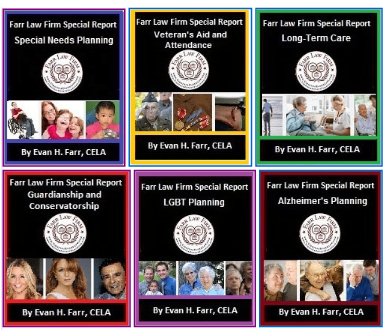She was in the Hospital a Week, and They're Calling it Observation Status!
Published: Fri, 11/06/15
 |
She was in the Hospital a Week, and They're Calling it Observation Status!If you cannot view the image below, please read the article on our blog. Q. Last month, my 82 year-old mother, Shirley, fainted and hit her back on the bathroom counter on her way to the ground. When she came to, she could hardly move, but she was able to grab her phone to dial 911.
She was taken to the emergency room, where the attending nurses looked her over and booked her into a bed. Over the next week, she was given every kind of test imaginable: X-rays, electrocardiogram, CT scan, ultrasound, and an MRI. Nurses came and went, and so did the doctors. Finally, after a week in the hospital, the problem was uncovered: a fracture in her lower spine. They called in a specialist, who was able to operate the same day.
After her surgery, she was moved to a different hospital room for one day of recovery, and then transferred to a nursing home for two weeks of rehabilitation.
Now she just received a monstrous bill from the hospital (over $4,000), and an even larger bill from the nursing home (over
$8,000). It turns out that Medicare covered the surgery and the one day in the hospital after that, but it did not cover the first
week in the hospital and did not cover the time in the nursing facility for rehab. We called the hospital and nursing home to figure out why everything wasn’t covered by Medicare, and we’re being told her
that Medicare isn’t paying because the hospital had her in “observation status” rather than “inpatient status” during the week when they couldn’t find anything wrong with her, and they say that Medicare doesn’t pay for “observation status” in the hospital. And they’re telling us that since the hospital only officially “admitted” her the day of the surgery, and she didn’t stay in the hospital for 3 days after being “admitted,” that Medicare doesn’t cover the rehabilitation expenses either.
I can't believe this. She was there for a week, and seen by nurses and doctors. How can they call that "observation status?" Is this legal? My mom can’t afford to pay these enormous bills.
A. I’m very sorry to hear your story, but unfortunately your situation is quite common. Observation status was designed to be a short period during which the hospital observes you to assess whether you need
to be checked in for longer-term inpatient care or whether you can be quickly treated as an outpatient and sent home. According to the claims-processing manual published by the Centers for Medicare and Medicaid Services, or CMS, a patient is either admitted as an inpatient or discharged in less than 24 hours, and “in only rare and exceptional cases” do they last more than 48 hours.
Unfortunately, as in your mother's situation, the definition provided by CMS isn't consistent with the data. In fact, researchers at Brown University, who reviewed Medicare claims from 2007 to 2009, found that more than 10% of Medicare recipients
were placed on observation status for over 48 hours. And, in those two years, there was an increase of nearly 90% in the number of patients held in observation status for more than 72 hours. Also, in a 2014 report to Congress published by the Medicare Payment Advisory Commission, it was found that there were 1.8 million observation claims submitted in 2012, an 88% increase from six years earlier.
What are the Problems with Observation Status?
Why Wouldn't Every Doctor Simply Admit All Patients Into Their Hospitals as Inpatients?
Hospitals can be penalized for misclassification. As a result, they often err on the side of classifying patients as being present for observation only. Until changes are made, here are a few steps hospitalized seniors and their families can take:
Bagnall vs. Sebelius
Richard Bagnall and other seniors who were denied Medicare coverage for skilled nursing care initiated a lawsuit about observation status in 2011. The plaintiffs asked the judge to eliminate hospital observation stays, or to at least require written notification when a patient is classified as observation rather inpatient status. Government lawyers argued for dismissal, saying the plaintiffs did not go through the entire Medicare appeals process before filing the lawsuit. The Center for Medicare Advocacy (CMA), representing 14 of the plaintiffs, argued that the appeals system is broken.
In September 2013, a District Court judge granted a government motion to dismiss Bagnall v. Sebelius, prompting CMA to file an appeal. Read more here.
The NOTICE Act
Although observation status is still intact, at least patients will be more informed than in the past. The NOTICE Act became a law in August 2015, requiring hospitals across the nation to tell Medicare patients when they receive observation care, but have not been admitted to the hospital. The law
requires hospitals to provide written notification to patients 24 hours after receiving observation care, explaining that they have not been admitted to the hospital, the reasons why, and the potential financial implications.
Hospitals will have to comply with the NOTICE Act beginning next August (one year after it was signed into law). Read more here.
In the meantime, your mom is probably going to be stuck paying those bills that she incurred. If she doesn’t pay, she will probably wind up being sued by the hospital and the nursing home. She can hire a lawyer to fight the hospital and the nursing home, or to try to negotiate a reduced settlement, but it’s not likely that the bills are just going to go away.
Medicaid Planning in Virginia and other States. What if your mother needs long-term nursing home care (which costs $10,000 - $14,000 a month in the Metro DC area)? To protect your family’s hard-earned assets from these catastrophic costs, the best time to create your own long-term care strategy is NOW. Generally, the earlier someone plans for long-term care needs, the better. But it is never too late to begin the
process of Long-term Care Planning, also called Lifecare Planning and Medicaid Asset Protection Planning.
If you have a family member nearing the need for long-term care or already getting long-term care or if you have not done Long-Term Care Planning, please call us as soon as possible to make an appointment for a no-cost consultation:
Fairfax Elder Law: 703-691-1888
Fredericksburg Elder Law: 540-479-1435 Rockville Elder Law: 301-519-8041 DC Elder Law: 202-587-2797 --------
Critter Corner: Why Take Advantage of End-of-life Care Talks?
 Dear Baxter,
I just read that Medicare will fund end-of-life planning discussions with doctors, as of Jan. 1, 2016. Why is this important? My doctor already does this for free. And why should seniors take advantage of these talks? I personally don't want to talk about death and
dying.
Thanks in advance for your thoughts!
Dawn Wannatock-Aboutit
---
Dear Dawn,
Some doctors, like yours, already provide end-of-life conversations without getting paid for the counseling time, and some private insurers already reimburse for it. However, because Medicare covers 55 million people, making it the largest insurer at the end of life in the U.S., its decision to cover end-of-life conversations is significant. Why?
It’s up to each person to decide whether or not to have end-of-life discussions with his or her physician. However, everyone should have incapacity documents in place. To begin the Incapacity Planning process, seniors should sit down with their family members to openly discuss their needs and the roles of
loved ones in assuring those needs are met. Once this important conversation occurs, and important decisions are discussed, it is important to work with a Certified Elder Law Attorney, such as Mr. Farr, to make sure that you have proper incapacity planning documents in place. These include not only the Advance Medical Directive, but also a properly-drafted General Power of Attorney and an Advance Care Plan, also called a Lifestyle Care Plan.
Hope this helps!
Arfs and hugs,
Baxter
------------ Sign up for our FREE Special Reports and get the answers to your burning questions! Just click on a cover below!  |
|
||
|
This email was sent to
.
|








